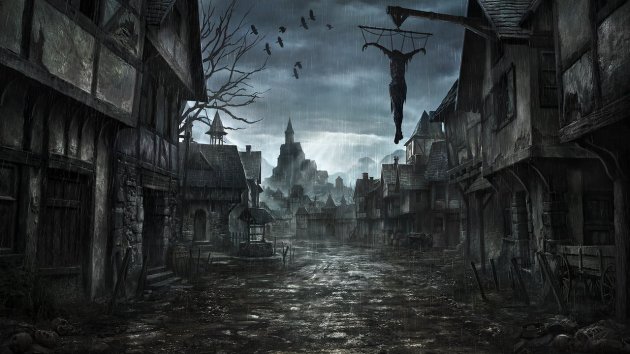
This article was originally posted on Wilder’s Book Review
Some of you may already be aware of this, others may not, and most likely don’t care. But before becoming entrenched in the Fantasy genre, I read almost exclusively what is classified as Horror. To be honest, I have never been a fan of that title/name. I feel it sounds almost derogatory, and evokes images and stereotypes of horror movies. That is not why I read Horror, and that is not what I took from it.
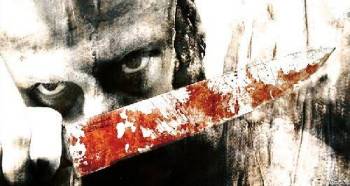 After recently “returning to my roots” and reading a couple of Joe Hill novels, I was reminded of exactly why I loved the genre (and still do). I don’t read to be scared, I don’t read for the horrific monsters; for the zombies, vampires, etc. I read for the emotional journey of a character. I want to read a book that will make me feel something. I want to feel a connection with the character. I also want unpredictability. I want a book where the unthinkable is possible because once you know the characters are safe from the unthinkable, you lose that connection, that emotional response. In Horror, characters are not safe, their path and obstacles along that path are not predictable. The characters are also often flawed, these flaws leading them along in their horrific journey.
After recently “returning to my roots” and reading a couple of Joe Hill novels, I was reminded of exactly why I loved the genre (and still do). I don’t read to be scared, I don’t read for the horrific monsters; for the zombies, vampires, etc. I read for the emotional journey of a character. I want to read a book that will make me feel something. I want to feel a connection with the character. I also want unpredictability. I want a book where the unthinkable is possible because once you know the characters are safe from the unthinkable, you lose that connection, that emotional response. In Horror, characters are not safe, their path and obstacles along that path are not predictable. The characters are also often flawed, these flaws leading them along in their horrific journey.
So this got me to thinking. What is it that I enjoy about Fantasy so much? I read it almost exclusively now and rarely venture outside the genre. What made me leave the “safety” of horror and venture into this uncharted territory for me? This got me to comparing the two genres, and I realized that much of what I love about Horror is also defining of the modern trends in Fantasy. The dark/gritty/grimdark books of today’s Fantasy, by the likes of Martin and Abercrombie, are very much indicative of what I love about Horror. Even Hobb would meet my criteria for a great Horror book. I think you’d be hard pressed to find a more emotional, unpredictable journey than that of Fitz Chivalry. In all of these fantasy books, there is that sense that the unthinkable is possible, the connection with the characters that makes you feel their journey, the knowledge that these characters, as much as you love them, are not perfect and are certainly not safe – bad things likely will happen. You just have to read to figure out what bad things. This definitely helped hook me and made me read more in the genre.
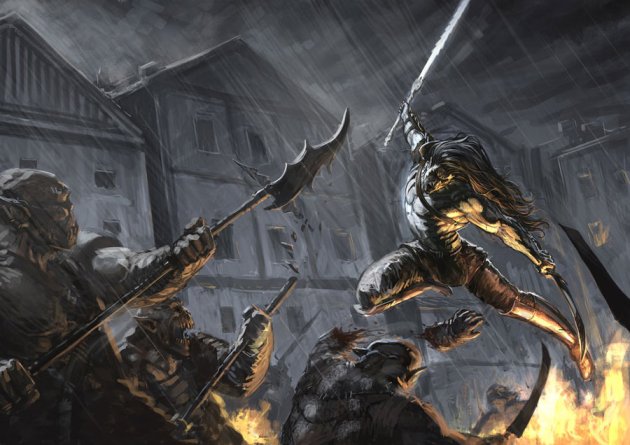
I have not read much of the classics in fantasy. And unfortunately, I have to confess, the ones I have tried, I just don’t connect with quite the same as I do with many of the current popular works. And I realized the elements that drew me in to the genre – the ones that are common to horror – seem to be less common among the classic books. I am not saying that there are not classics that would fit this, and I am not saying I don’t or can’t enjoy any of the classics. Among other things, I am by no means an expert in any of this, so my observations and claims here, are just personal reactions and theories based on my experience. And within older fantasy, I will admit, my exposure to the genre is quite limited. But from what I have seen and read, these horror elements seem to be more common in today’s fantasy. And I can’t help but speculate that this is part of the reason I have trouble connecting with some of the older fantasy books I have tried. Every reader will have their personal preferences and draws to the books they read. These are mine, so I will have different preferences within the genre than a reader that is enticed stronger by the world building and fantastical creatures.
So I think that in Fantasy, I found the horror I have always loved, but with slight twists/modifications that were new to me. Not every book that I love in Fantasy has 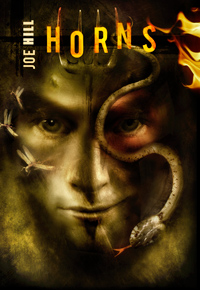 horror elements to it because I have found new things to enjoy in my reading, things defining of Fantasy that differentiate it from classic Horror. The elements that make fantasy Fantasy. I’ll admit to loving alternate worlds, especially ones with a full removal from modern day technology. The Kingkiller Chronicles would never be the same if Kvothe and Denna could just text one another, or use GPS tracking to find each other. I also love the journeys, the struggles, the political intrigue that are so in epic fantasy. Fantasy is also typically done as a series of books and because of this, the stories can achieve a level of complexity that is just not possible in a standalone novel (like most Horror books). So with this I have found there are books that I love for reasons other than what I loved in horror. Michael J. Sullivan’s Riyria Revelations are an excellent example of this. His books are purely fantasy. They were an excellent break from my usual grim choices and displayed everything I love that is unique to fantasy. Excellent characters, journeys, oh… and magic.
horror elements to it because I have found new things to enjoy in my reading, things defining of Fantasy that differentiate it from classic Horror. The elements that make fantasy Fantasy. I’ll admit to loving alternate worlds, especially ones with a full removal from modern day technology. The Kingkiller Chronicles would never be the same if Kvothe and Denna could just text one another, or use GPS tracking to find each other. I also love the journeys, the struggles, the political intrigue that are so in epic fantasy. Fantasy is also typically done as a series of books and because of this, the stories can achieve a level of complexity that is just not possible in a standalone novel (like most Horror books). So with this I have found there are books that I love for reasons other than what I loved in horror. Michael J. Sullivan’s Riyria Revelations are an excellent example of this. His books are purely fantasy. They were an excellent break from my usual grim choices and displayed everything I love that is unique to fantasy. Excellent characters, journeys, oh… and magic.
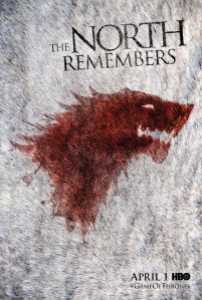
Looking at all of this, I suspect it was the horror in modern fantasy that drew me to the genre and ironically, luring me away from the horror section. These are some of the aspects of the current trends in fantasy that I think make the books so appealing to not just me, but other readers who may never have read a horror book outside of perhaps a required Edgar Allen Poe short story in school. Of course, I have found more to love within the Fantasy genre than just the elements I find familiar and reminiscent of horror. But I think many readers do not realize that Horror is more than just cheap thrills and scares. It’s characters and emotions, and is much more prevalent in modern fantasy than one might think. Really, I would say it lurks and invades and embeds itself in what we read, in ways that you might not suspect. So, the next time you pick up a modern fantasy novel, watch out – the horror within it may be waiting for you.

I remember saying a few times that Robin Hobb makes grimdark look unrefined with what she puts her characters through, hah. Actually, I think I said as much in my review of the first one.
Rabindranauth recently posted…Pride and Prejudice by Jane Austen